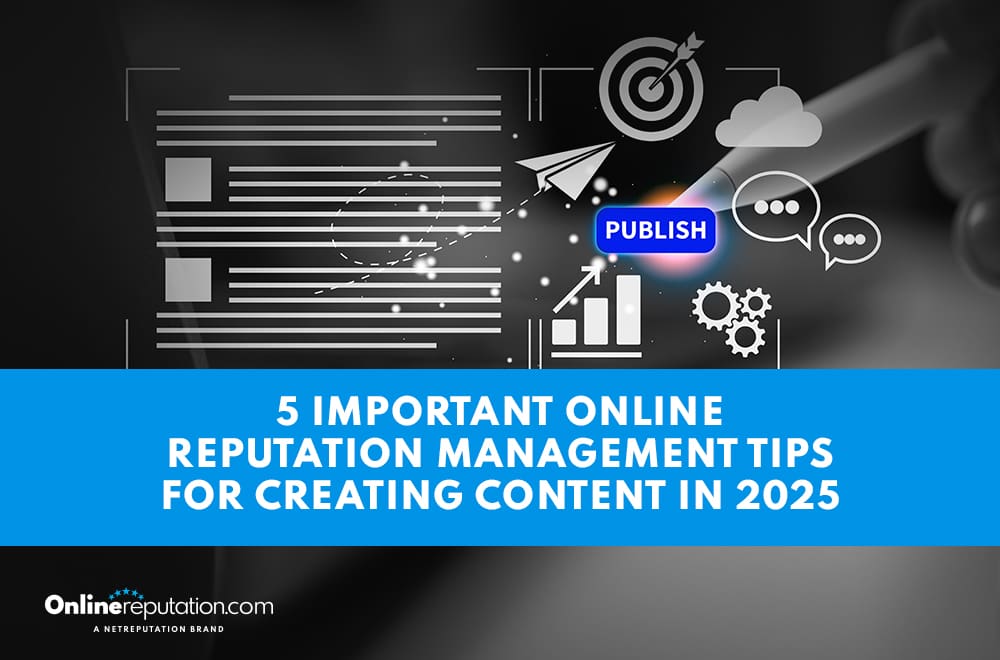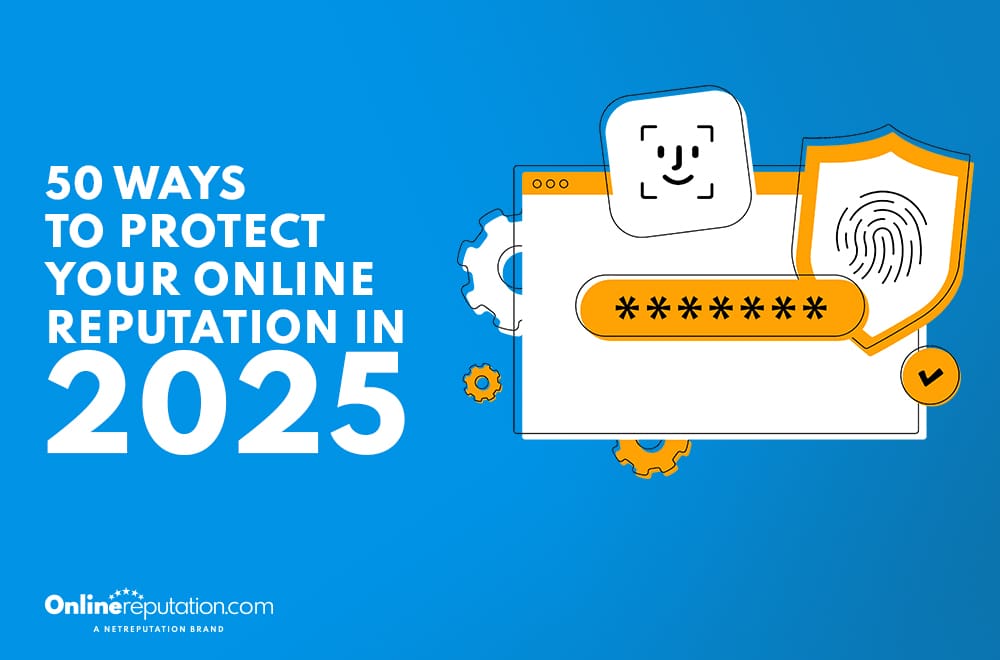
Our guide to the 5 most important reputation management tips will help you build a solid and resilient online reputation.
If you’re a blogger or podcaster, you’ve already taken a significant step toward developing a positive brand reputation. Blogs and podcasts are two of the most valuable tools for establishing your online reputation.
As a content creator, online reputation management (ORM) should be one of your priorities since it is so important. However, what you say about yourself isn’t nearly as important as what others say. Any fantastic content you create can be quickly overshadowed by negative reviews on Google, less-than-complimentary blog posts, and social messages recommending your competitors over you.
What’s a blogger or podcaster to do? Here are our best reputation management tips to make sure your content shines online in a way that boosts your online reputation.
We work with clients to help them build their brand’s reputation and take control of their digital presence. Give us a call at 844-230-3803 to learn more.
Tip #1: Always Put Out Your Absolute Best Work

You’ve probably heard this advice before, but content is king. It’s a universal truth in blogging and podcasting. What you put out there for your fans to consume must be great — or they won’t come back. If you want to be seen as an expert in your field, your content has to be expert-level and create an excellent customer experience.
Tip #2: Support Your Opinions With Evidence
To follow up on the last point, make sure that whatever content you create is backed up with experience. A strong opinion is worth a lot more when you can tell people why it’s your opinion.
For example, on food blogs, posts should be based on the writer’s personal experiences in the kitchen, and every recipe shared should be tested first. You wouldn’t want a food blogger to suggest a recipe they never tried, would you? That’s a surefire way to collect negative online reviews and lower customer satisfaction rates.
Don’t have the experience yourself? Find people who do and quote them, or even invite them to write a guest post on your blog or be a guest on your podcast. This reputation management strategy allows you to showcase your expertise or share the expertise of others in your industry.
Today, brand reputation management is more important than ever before. Get started with a free analysis here or explore our services offered through our parent company, NetReputation.
Tip #3: Define Your Persona
How do you want people to know you? Online, we all have personas. It’s not about putting on a fake face for your readers or listeners; it’s about sharing a particular aspect of yourself.
For example, let’s say you follow a lovely, friendly, mentor-type online. If they wrote a snarky, mean-spirited post, it wouldn’t fit in with their persona, even though it’s likely that those thoughts sometimes run through their head. (Hey, we’re all human!)
Blog posts and podcast episodes should all support the persona you’ve created.
Make sure that what people say about you fits well with the persona you’ve developed. ORM isn’t just about managing negative online reviews and comments; it’s also about making sure that your content fits what you’re trying to portray.
Tip #4: Make Your Mantra “Create and Wait”
We all get heated about issues sometimes. When you create emotional content (for example, you’re writing an angry rant about a product you’ve used and hated), use the “create and wait” technique. Create the content, but instead of posting, wait 24 hours (or more) before hitting that publish button. Often, our emotions dissipate over time, and you might regret something you wrote or said in the heat of the moment. Give yourself time to calm down before deciding if you want to post something.
It’s possible to create a robust, positive online reputation and active social media presence even if you’re starting from zero or rebounding from a PR crisis. Call us at 844-230-3803 for more information.
Tip #5: Give Some Thought to SEO
Many bloggers and podcasters don’t pay any attention to SEO because they believe writing for people is more important than search engines. But guess who uses search engines? That’s right: people!
Don’t stuff your articles with keywords or otherwise sacrifice the quality to appease search engines, but learn basic keyword research techniques and how to optimize your content so search engine users can find you.
Remember, the top results are the ones given the most clout by your audience. So, if the first result when someone searches your name is a negative review, you should use basic SEO techniques to take over that top spot. You can’t eliminate a negative review, but you can push the result down on the page so it isn’t so prevalent.
Bonus Tip: Respond to Comments Where They Happen
If someone writes something negative about you in a blog post, your gut reaction might be to respond with your own blog post. While you can do this, make sure you also respond to any negativity where it’s actively happening.
People who see the negativity may never make it to your site to see your response, so leave a professional, polite comment wherever you are mentioned. Courteous replies that acknowledge reviews, propose alternative solutions to remedy problems, and explain circumstances that might have led to the negative review will paint your business in a positive light. (Remember to use the “create and wait” rule if you are emotional!)
Wrapping Up
That’s it for our 5 most important ORM tips for content creation. Developing a reputation management strategy is no small feat, but with time, patience and best practices, you can build the online presence you deserve. And by improving the customer experience, you’re bound to gather more positive reviews, which will boost your brand’s reputation even more.
You may also be interested in our online reputation management services. At OnlineReputation.com, we provide must-know information to anyone who wants to create, grow or repair their brand’s reputation. Whether you’re prioritizing your personal or professional online reputation, our advice and team of experts can help.
Through our parent company, NetReputation, we offer a range of online reputation management services. Call us today at 844-230-3803 to learn more.
You might also like
Why Your Name’s Search Results Look Different in Different Locations
Our guide to the 5 most important reputation management tips will help you build a solid and resilient online reputation. …






